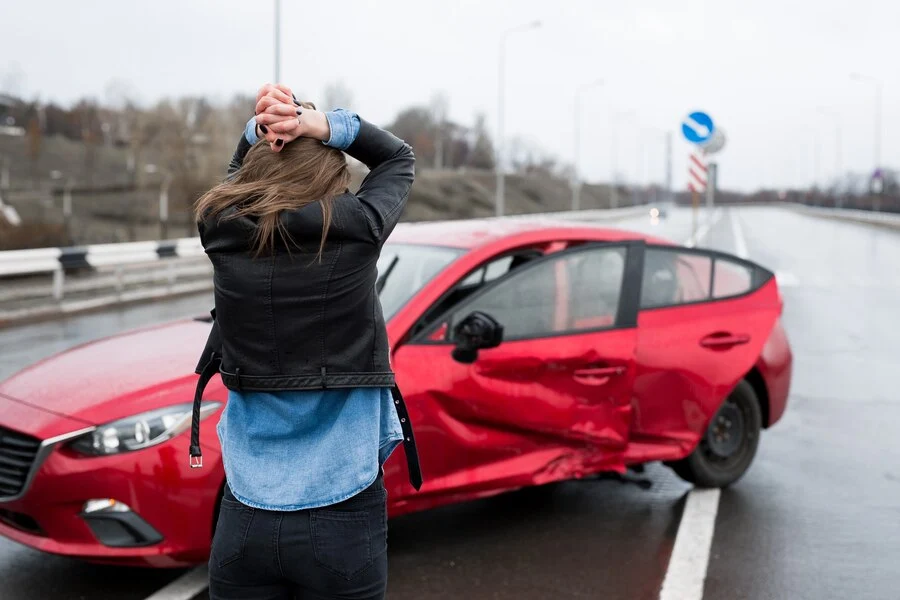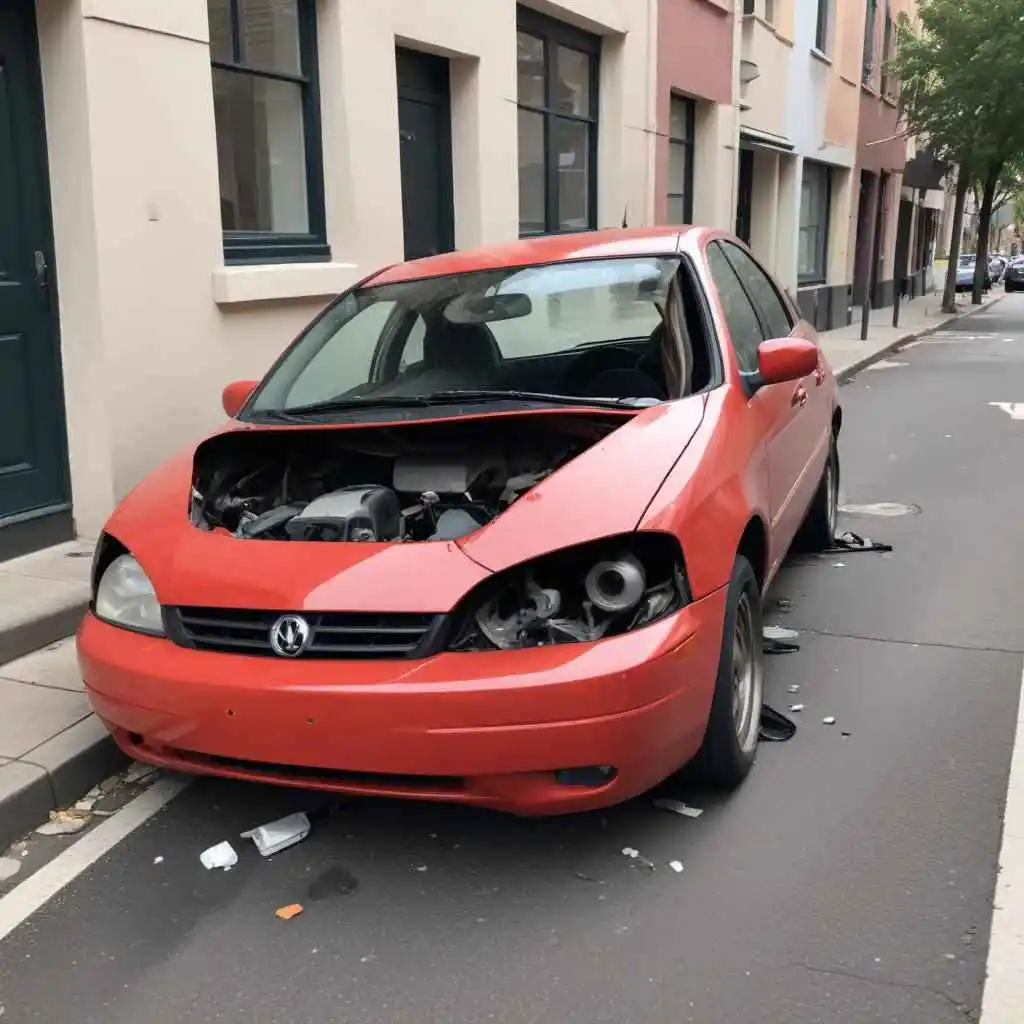personal injury lawyers
Fighting for maximum injury compensation for you and your family
No Fees Until We Win


Mistakes To Avoid After a Car Accident: Your Road to Recovery
After a car accident in New Jersey, it’s essential to prioritize your well-being and take steps to protect your rights and interests. Documenting the scene thoroughly is necessary to avoid severe legal and financial consequences.
Accurate documentation builds a solid case and seeks fair compensation for damages. Take photos and videos, note the location, road conditions, vehicle damage, and visible injuries.
Obtain witness statements and their contact information. Also, document the vehicles’ make, model, license plate number, and the parties’ insurance information. Failing to document the scene properly can lead to gaps in evidence, making it challenging to prove your claim.
By taking care of yourself and documenting the scene, you’ll protect your legal rights and ensure fair compensation, avoiding critical mistakes and risking your chances of receiving justice.

Car Accident Common Effects
Car accidents can have a profound impact on your life. According to a 2023 report by the National Highway Traffic Safety Administration (NHTSA), over 20 million people are injured in car accidents in the United States annually.
Physical injuries like whiplash, broken bones, or head trauma can be painful and debilitating. Emotional distress like anxiety, depression, or PTSD can also occur, making it hard to cope with daily life.
Financial problems like medical bills, lost wages, and property damage can add stress and uncertainty.
To make matters worse, dealing with insurance claims and lawsuits can be a stressful experience. The consequences of a car accident can be far-reaching and devastating, affecting not only your physical health but also your emotional well-being and financial stability.
12 Common Mistakes You Should Avoid After a Car Accident
Car accidents can cause physical injuries, emotional distress, and financial burdens. To protect yourself, avoid these common mistakes:

1. Not Seeking Medical Attention:
Not seeking medical attention can be a mistake. Even if you feel fine initially, certain injuries, such as whiplash or internal bleeding, may not show symptoms immediately.
Delaying treatment can lead to further health issues, long-term damage, and reduced chances of recovery. Not getting medical assistance can also weaken your case and reduce your eligible compensation. We highly recommend that you should sign a Medical Authorization Release Form.
2. Not Calling the Police
Choosing not to contact the police can significantly harm your case. Not reporting the accident can make it more difficult to determine fault and collect significant evidence.
We highly recommend you contact the police and file the report to police immediately because even in minor accidents, contacting the police ensures an official report is created, documenting the events.
Such a report is necessary for establishing fault and receiving fair compensation, underscoring the need to notify the authorities promptly after the accident.
3. Not Exchanging Information
Failing to exchange information with the other parties can significantly impact your case. Failing to collect names, contact details, insurance information, and vehicle registration numbers can complicate filing a claim or taking legal action.
This mistake can result in missed compensation opportunities, underscoring the importance of documenting all relevant information at the accident site.
4. Not Documenting the Scene
Failure to document the accident scene can significantly weaken your case. Failing to capture photographs, videos, or written notes of the details can make it challenging to reconstruct the event accurately.
This lack of evidence can lead to inconsistencies and disputes, making it harder to prove your claim and receive fair compensation. Comprehensive documentation is essential to building a solid case.
5. Admitting Fault
At the site of an accident, admitting fault might be an expensive error. Avoid apologizing or accepting blame even if you think you may have contributed to the accident. Such statements can be used as evidence against you, limiting your ability to seek compensation.
Instead, focus on exchanging information and documenting the scene, and let the investigation determine fault. Remember, admitting fault can risk your right to fair compensation.
6. Delaying Insurance Notification
Delaying insurance notification can have negative consequences. Failing to report the accident to your insurance company on time can raise suspicions and lead to a delayed or denied claim.
It’s essential to notify your insurer promptly, providing accurate details and documentation to support your claim. Quick notification demonstrates transparency and cooperation, helping to ensure a smooth claims process and fair compensation.
7. Not Collecting Witness Information
Not collecting witness information can be a significant oversight. Eyewitness accounts can provide an important testimony to support your claim and establish fault.
Failing to gather contact information from witnesses can make it difficult to reach them later, weakening your case. Always collect names, phone numbers, and statements from witnesses to ensure their valuable insights are available to support your claim.
8. Accepting Quick Settlements
Avoid accepting quick settlements from insurance companies, as they prioritize their interests over yours. Initial offers may be low and inadequate, failing to account for the full extent of your damages.
Consult a car accident lawyer to evaluate your case and ensure you receive fair compensation. They can help you negotiate a better settlement or take legal action if necessary.
9. Not Following Medical Advice
Not following medical advice can negatively impact your case. Ignoring treatment plans, skipping physical therapy sessions, or missing follow-up appointments can be seen as evidence that your injuries are not being taken seriously. This can lead to reduced compensation or even a denied claim.
People frequently hesitate to continue treatment because they fear having to pay for their medical care. It’s important to follow your doctor’s advice and keep records of your compliance to show how serious your injuries are and strengthen your case.
10. Posting on Social Media
Posting about the accident or your injuries on social media can have unintended consequences. Insurance companies and opposing parties may use your posts to discredit your claim, arguing that your injuries are less severe than they are.
Avoid sharing details or photos about the accident. Consider adjusting your privacy settings to prevent unwanted access. Remember, it can be challenging to take it back once you post something online.
11. Not Consulting an Attorney
Failing to consult a car accident lawyer can be a costly mistake. Without legal expertise, you may miss critical deadlines, undervalue your claim, or inadvertently admit fault.
An experienced attorney can help you handle the legal processes, ensure you receive fair compensation, and protect your rights. Don’t risk your case; seek professional legal guidance to maximize your recovery and achieve a more favorable outcome.
12. Neglecting Future Costs
Failing to consult a car accident lawyer can be a costly mistake. Without legal knowledge, you may miss critical deadlines, undervalue your claim, or inadvertently admit fault.
An experienced attorney can guide you through the complex legal process, ensure you receive fair compensation, and protect your rights. Don’t risk your case; seek professional legal guidance to get the most compensation and achieve a more favorable outcome.
Can I Sue the Other Driver in My Car Accident?
If the other driver caused the accident, you have the option to sue them under New Jersey’s tort liability system (N.J.S.A. 39:6A-1 et seq.). Before taking any legal action, it’s necessary to consult with an experienced lawyer.
The lawyer can assess your case, suggest the best steps to take, and assist you in understanding the legal procedures. You must file a personal injury lawsuit because of its multiple benefits within two years in New Jersey (N.J.S.A. 2A:14-2), so it’s essential to act immediately to protect your rights.
Is My Car Accident Case Worth Pursuing?
The value of your car accident case depends on various factors, including the severity of your injuries (N.J.S.A. 2A:15-1.5), the extent of property damage (N.J.S.A. 39:6A-2), lost wages (N.J.S.A. 2A:15-1.6), and other damages.
It’s also an important factor to know the circumstances under which a car accident case goes to court in New Jersey to fully understand the legal process
To estimate its value, a skilled car accident lawyer can review your case details, such as medical costs, emotional distress, and possible long-term impacts.
Additionally, they can assist you in understanding New Jersey’s laws on comparative negligence and secure proper compensation for your losses. Before settling, seek advice from a lawyer to assess the value of your case accurately.
Can Insurance Companies Look After My Car Accident Case?
Insurance companies are primarily interested in protecting their interests and minimizing payouts. While they may handle certain aspects of your case, it’s crucial to have an experienced car accident lawyer advocating for your rights and ensuring that you receive fair compensation.
A 2023 report by the Insurance Research Council (IRC) found that individuals represented by legal counsel in car accident claims receive significantly higher settlements than those who handle their claims alone.
How Can Car Accident Lawyers Help?
In New Jersey, our experienced car accident lawyers take essential steps to protect your rights and ensure you receive the compensation you deserve. They can investigate the accident and gather evidence to establish fault. They handle communication and negotiations with insurance companies.
They calculate the full extent of your damages, including future costs. They represent you in court if a settlement cannot be reached. They advise you on legal procedures, ensuring you meet all necessary deadlines, such as New Jersey’s two-year statute of limitations (N.J.S.A. 2A:14-2), to secure the maximum possible recovery for your injuries and damages.
If you’ve been in a car accident in New Jersey, Rosengard Law Group is here to help. Our experienced attorneys will guide you through the complicated legal process and fight to secure the compensation you deserve.
With a deep understanding of New Jersey’s car accident laws, we will protect your rights and work tirelessly to achieve the best possible outcome for your case. Contact us today to schedule a free consultation and take the first step towards justice.
FAQs
What to Do After a Bad Car Crash?
After a severe car crash, prioritize safety. Call 911 for medical assistance, report the accident to the police, and gather essential information. Seek medical attention and consult with an attorney.
What Is the Most Dangerous Injury in a Car Accident?
The most dangerous injuries in car accidents often involve head trauma, spinal cord injuries, and internal injuries. Head injuries can be particularly severe and lead to long-term complications.
Conclusion
Car accidents can be life-altering events. Knowing how to handle the aftermath is crucial to protect your rights and secure the compensation you deserve. By avoiding common mistakes, seeking legal counsel when needed, and understanding the role of insurance companies, you can make the road to recovery smoother and more manageable.
Remember that your well-being and financial security are essential, and taking the right steps after a car accident can make a significant difference in your life.

Free Injury Case Evaluation
Send the form below and we will call you back in minutes.
…or Call Us Now
856-284-6446
